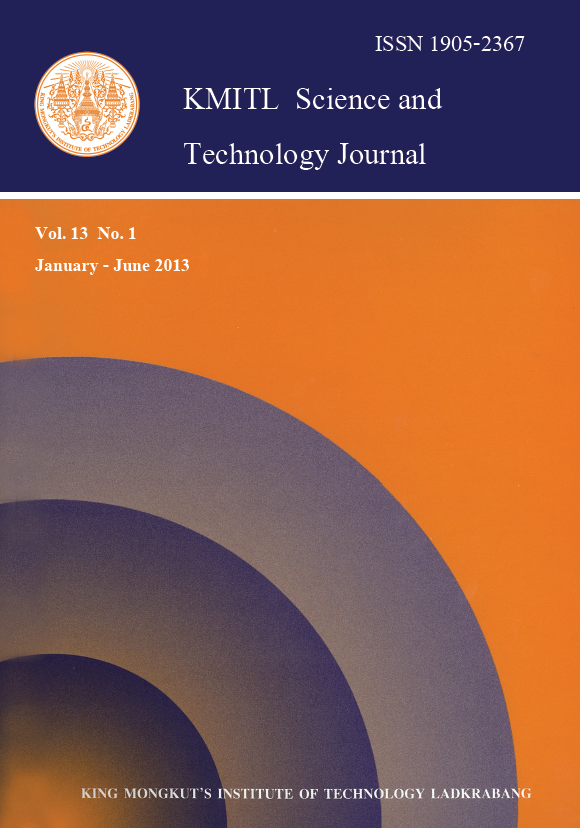Antimotility Effect of Machiluss odoratissima & Sonchus wightianus from Nepal
Main Article Content
Abstract
The extracts of Machiluss odoratissima & Sonchus
wightianus were subjected to investigate phytochemical,
cytotoxic and antimotility properties. The phytochemical
screening showed the presence of different compounds. The
cytotoxic screening showed that both the extracts are nontoxic.
The in vivo study showed the presence of potent
antimotility compounds in both plants.
Keywords: Machiluss odoratissima, Sonchus wightianus, antimotility, Nepal
Email: amitsubedi@gmail.com
Article Details
Copyright Transfer Statement
The copyright of this article is transferred to Current Applied Science and Technology journal with effect if and when the article is accepted for publication. The copyright transfer covers the exclusive right to reproduce and distribute the article, including reprints, translations, photographic reproductions, electronic form (offline, online) or any other reproductions of similar nature.
The author warrants that this contribution is original and that he/she has full power to make this grant. The author signs for and accepts responsibility for releasing this material on behalf of any and all co-authors.
Here is the link for download: Copyright transfer form.pdf
References
[2] Subedi A, Amatya MP, Shrestha TM, Mishra SK, Pokhrel BM, 2012. Antioxidant and antibacterial activity of methanolic extracts of Machilus odoratissima. KUSET, 8(1), 73-80.
[3] Namsa ND, Tangjang S, 2011. Natural pharmacopoeia used in traditional system of medicine for the treatment of diarrhoea in Arunachal Pradesh. Medicinal Plants -International Journal of Phytomedicines and Related Industries, 3(3), 191-201.
[4] Paudel A, Panthee S, Shakya S, Amatya S,Shrestha TM, Amatya MP, 2011. Phytochemical and antibacterial properties of Rhododendron campanulatum from Nepal. Journal of Traditional Medicines, 6(6), 252-258.
[5] Carballo JL, Hernandez-Inda ZL, Perez P, Garcia-Gravalos M, 2002. A comparison between two brine shrimp assays to detect in vitro cytotoxicity in marine natural products. BMC Biotechnology, 2(17).
[6] Rouf R, Uddin SJ, Shilpi JA, Alamgir M, 2007.Assessment of anti diarrhoeal activity of the methanol extract of Xylocarpus granatum bark in mice model.Journal of Ethnopharamcology, 109(3), 539-542.
[7] Moshi MJ, Innocent E, Otieno JN, Magadula JJ,Nondo RSO, Otieno DF, Wensheit A, Mbabazi P,2010. Antimicrobial and brine shrimp activity of Acanthus pubescens root extracts. TJHR, 12(2).


